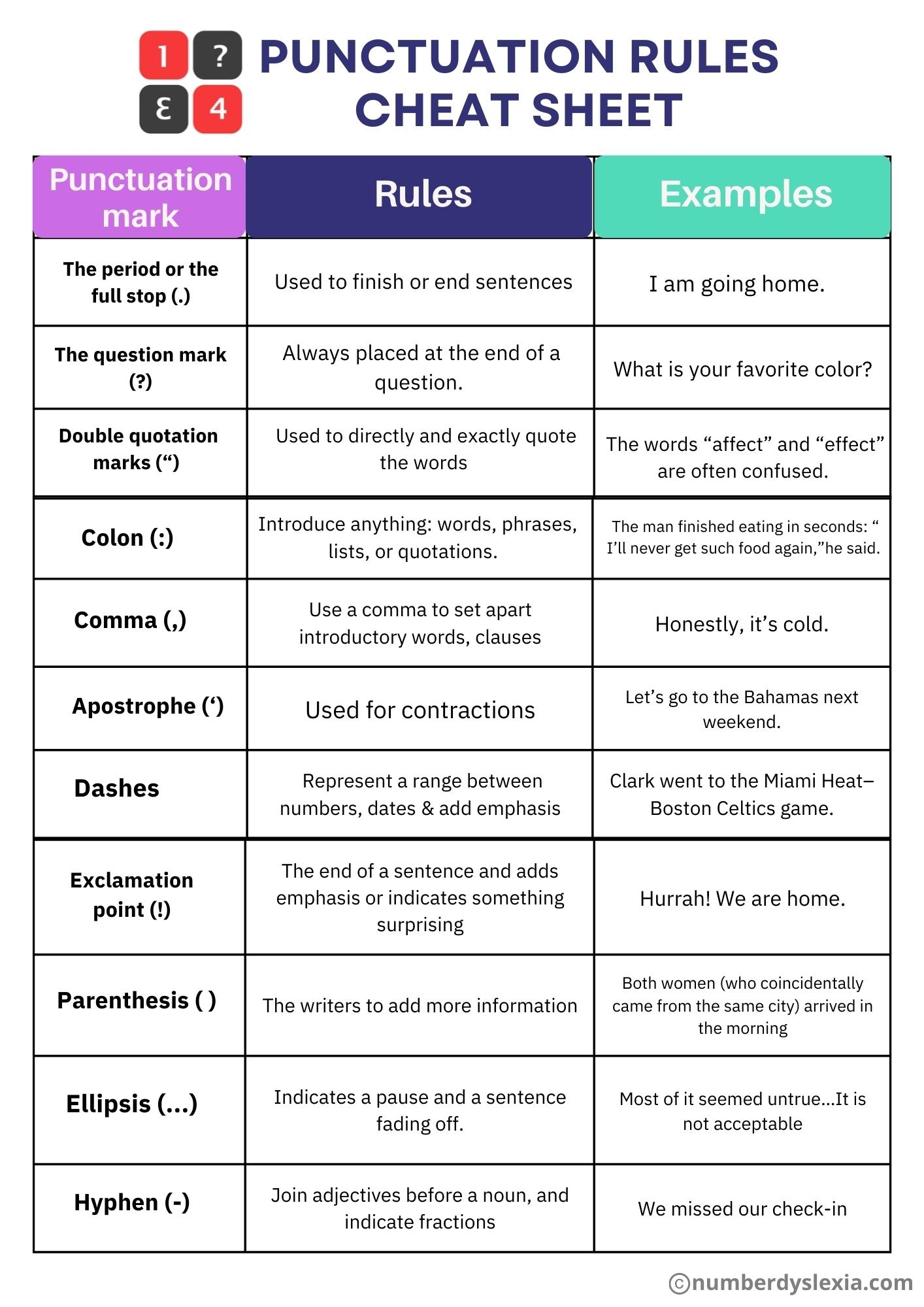Punctuation is essential in English writing as it helps convey the intended meaning of the text. Proper punctuation can make a significant difference in how a sentence is interpreted and can affect the overall clarity of the written piece. Understanding and following English punctuation rules is crucial for effective communication.
Whether you are writing an essay, a business email, or a social media post, knowing the basic punctuation rules can greatly improve the quality of your writing. By mastering these rules, you can ensure that your message is conveyed accurately and professionally.
English Punctuation Rules
1. Period (.) – The period is used to indicate the end of a sentence. It is also used in abbreviations such as “Mr.” for Mister or “Dr.” for Doctor.
2. Comma (,) – Commas are used to separate items in a list, set off introductory phrases or clauses, and separate independent clauses when joined by a conjunction such as “and” or “but.”
3. Apostrophe (‘) – Apostrophes are used to indicate possession (e.g., Sarah’s book) or to show contraction (e.g., can’t for cannot).
4. Quotation Marks (” “) – Quotation marks are used to indicate direct speech or to enclose titles of short works such as articles, poems, or songs.
5. Colon (:) – Colons are used to introduce a list or to separate independent clauses when the second clause explains or elaborates on the first.
Mastering these basic punctuation rules can significantly improve the clarity and professionalism of your writing. By paying attention to punctuation, you can ensure that your message is accurately conveyed and easily understood by your readers.
In conclusion, English punctuation rules are essential for effective communication in writing. By following these rules and practicing them regularly, you can enhance the quality of your written work and convey your message clearly and accurately.
